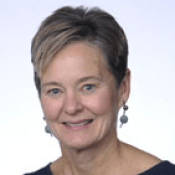Just because our country is reversing its efforts to address climate change doesn’t mean the problem is going away.
Quite the contrary, as everybody is consumed with worry about a tariff war wrecking the world economy and neighbors being abducted and deported without due process to hellholes in El Salvador, the rise in the Earth’s temperatures is accelerating, hitting historic highs while glaciers are rapidly receding.
Mother Nature bats last, after all, regardless of your political affiliation. And if January’s devastating fires in Los Angeles didn’t shake you from willful disbelief, you clearly were watching too much Fox News.
Andrew Sears is here to help.
The former teacher and school administrator is launching a project to tell the personal stories of climate change across the nation in an attempt to make it real. It starts on Tuesday, Earth Day, and ends, well, maybe never.
Sears, a reluctant environmentalist in Denver, was planning to do something easy for his Ph.D. dissertation in psychology. “I’m a do-less, sleep-more person,” he admitted.
But then his husband, neurologist and climate scientist Dr. Ali Saad, set him back on his heels.
“He turned to me and said, ‘It’s your ethical obligation to research climate,’ ” Sears said.
Whoa. How do you counter that?
Sears rose to the challenge.
As he thought about what he could do, he realized that whenever experts talked about climate, they focused on numbers. They produced graphs of increasing temperatures and maps of rising sea levels.
“In an effort to prove that it is real, the scientists use all kinds of quantitative data,” Sears said. “But they skip over the most important part: what’s actually happening to people.”
Enter the budding psychologist.
Sears set out to design a project to provide narrative data to fill the yawning gap in the mountains of research on climate change. He wanted to gather the stories of people experiencing what’s happening in their homes and their neighborhoods, whether they believe in man-made climate change or not.
Their stories might be as simple as a memory of a freakishly warm Christmas morning in Alaska or as traumatizing as a nightmare hurricane in Florida. They might reveal how people’s views of the planet or their neighborhoods change over time. They might prove insightful, persuasive even.
The point is to create an intimate understanding of the transformation of the world as it is happening and make us aware of what we are leaving our grandchildren.
“I’m a longitudinal qualitative researcher utilizing narrative methodologies,” Sears explained. And when he says “longitudinal,” he’s not kidding. He expects this project to last at least a lifetime — his lifetime.
Working with an expert in narrative research at Fielding Graduate University, he developed protocols for recruiting 12 participants from across the United States to be interviewed about their experiences now and every two years for the rest of his life.
Ideally, the 12 participants will represent a wide range of ages, backgrounds and geographical locations. To participate, volunteers must be at least 18 and speak English.
All that seemed pretty straightforward, but he still had one big challenge: he had to get the word out.
Working with Fielding Graduate University, the University of Denver and several other institutions, Sears organized the Global Climate Classroom to be held online via Zoom on Tuesday. He also created a website at TheClimateStudy.org for people to share their stories and is spreading the word via social media.
Sears is focusing much of his effort on communicating with young people.
“I want kids to be connected to climate researchers,” he said. Since they will inherit a vastly different world, “they need to have a seat at the table.”
Sears is worried about how a warming planet is affecting people and expects his research will provide new information on the psycho-social effects of climate change.
As temperatures have increased, he said, so has the tendency for people — particularly boys — to become aggressive.
“We need to put interventions in place now to help boys and to protect girls,” he said. “We need to talk about what unhealthy aggression looks like in this context.”
The stories also might shed light on how a changing environment affects migration patterns, economic pressures and political trends.
While the goal of gathering narrative data was the original objective, Sears said the creation of a network to connect people and foster collaboration for solutions to address climate change and its myriad impacts is equally important.
“I truly hope I can help in any way possible, if only by spreading the word,” he said. “The solutions for climate are found within us and inside the stories we tell.”
His enthusiasm is undeniably contagious. Sometimes even a “do-less, sleep-more” person can change the world.

The Colorado Sun is a nonpartisan news organization, and the opinions of columnists and editorial writers do not reflect the opinions of the newsroom. Read our ethics policy for more on The Sun’s opinion policy. Learn how to submit a column. Reach the opinion editor at opinion@coloradosun.com.
Follow Colorado Sun Opinion on Facebook.
Advocates for ideas and draws conclusions based on the author/producer’s interpretation of facts and data.
